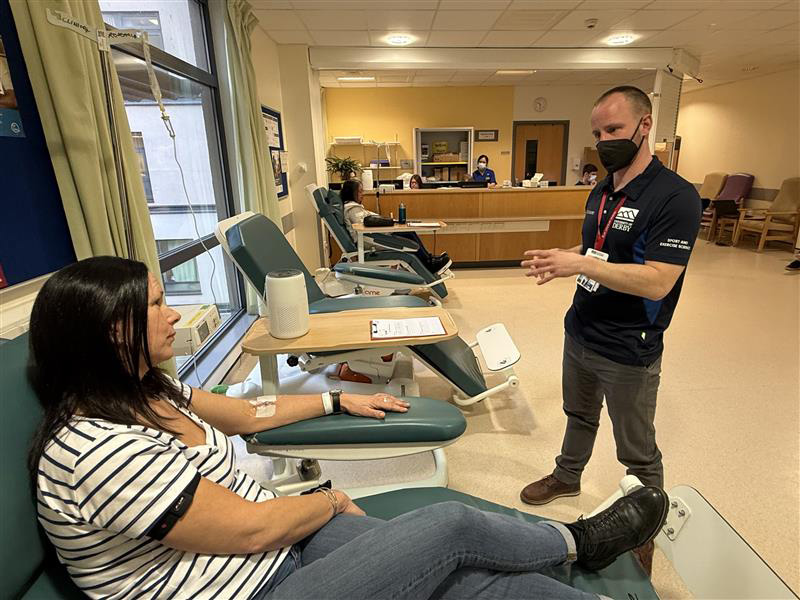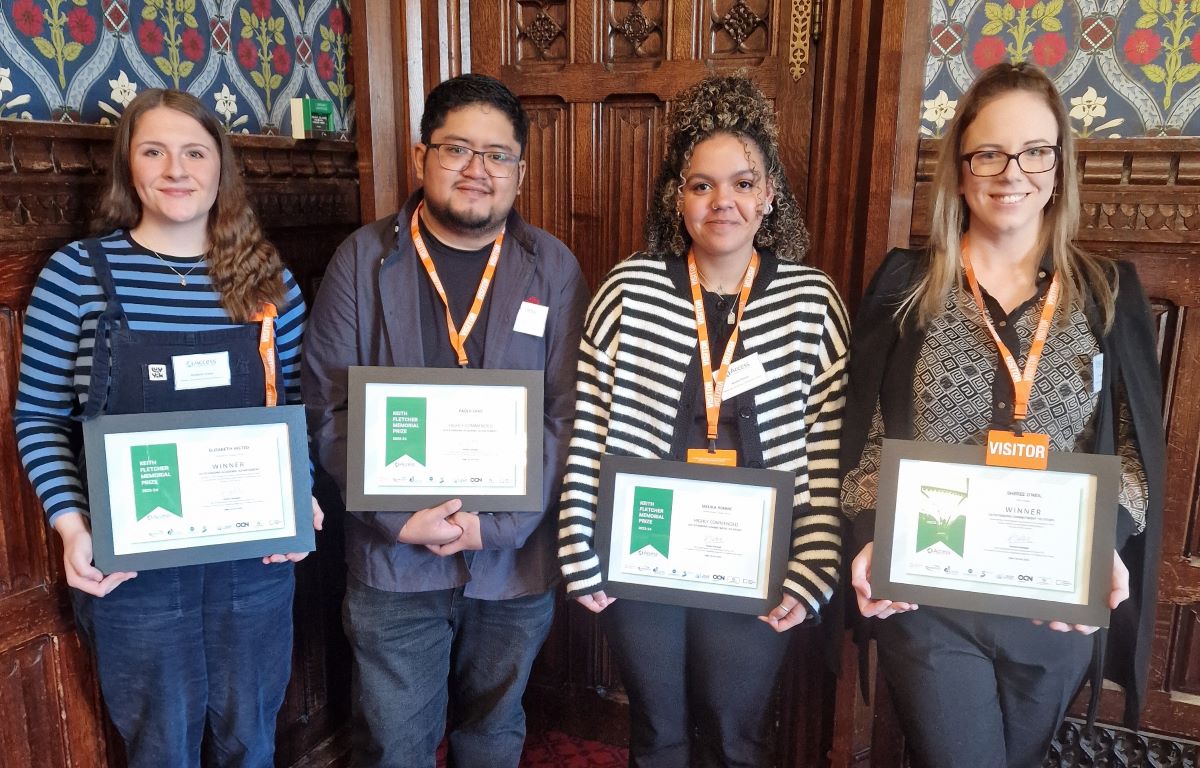What does ChatGPT mean for the future of assessment?

ChatGPT and other artificial intelligence (AI) tools have opened the floodgates for plagiarism in assessment, particularly for tasks completed without supervision. Written exams protect against cheating but do not build the wider skills that universities and employers are looking for among students. So what should the future of ‘high stakes’ assessment look like?
Within six months of the launch of ChatGPT, it has already caused immense disruption throughout the education system. Its ability to produce entire essays and projects with little input (if any) from a student has led to cases of plagiarism being reported worldwide across schools and colleges. As a result, there is now a significant threat to the integrity of ‘high stakes’ assessments in secondary education that often determine students’ future progression.
Even before the development of ChatGPT and other forms of artificial intelligence (AI) tools, coursework had long suffered from various forms of malpractice. Over the last 20 years, numerous reports from regulators and independent experts showed that work produced by students with minimal supervision had resulted in widespread plagiarism.
For example, in the early days of GCSEs there were concerns that their large coursework component was putting standards at risk, with some students allegedly getting too much help from their teachers and parents or in some cases having their work written for them.
A shift towards ‘controlled assessments’ in the mid-2000s
To combat this, there was a shift towards ‘controlled assessments’ in the mid-2000s. These were similar to coursework but were produced under supervised conditions and with much tighter controls on their design, delivery and marking. Despite these changes, the exam regulator Ofqual concluded that there were still too many opportunities for plagiarism.
Although countless well-intentioned rules and regulations were brought in over many years, they were only able to offer limited protection against malpractice. The use of ‘non-exam assessment’ (including coursework and controlled assessment) has since been reduced in some subjects such as history and geography, and removed entirely in others such as science.
The development of ChatGPT and other AI tools has compounded these persistent issues with dishonest behaviour. It is now possible for chatbots to construct essays and projects in a matter of minutes (if not seconds), which students may then attempt to pass off as their own. This leaves a wide range of subjects and assessments vulnerable to malpractice, including English literature essays and art projects.
With many students under pressure to secure a competitive university place or job, history has shown that some may be tempted to cheat. Equally, with so much on the line for students, any grade unfairly being awarded to those who engage in malpractice would have significant consequences. Even though most students will continue to act honestly, there is no realistic prospect of teachers, headteachers, principals and exam boards being able to consistently detect such behaviour.
ChatGPT has already caused issues for the International Baccalaureate
ChatGPT has already caused issues for the International Baccalaureate (IB), which expects all of its Diploma students – equivalent to A-level – to complete an unsupervised, independent research project (the ‘Extended Essay’). There have been multiple reports of students admitting to, or being suspected of, using ChatGPT to complete this assignment. As a result, mere weeks after the launch of this new tool, the IB stated that the longstanding Extended Essay may be removed from the programme in future.
Taking into consideration these challenges, what is the most suitable way forward when assessing students? Written exams can help protect against plagiarism as they are completed under supervision in silent halls, with students given the same questions and answering them without access to external assistance. This minimises the risk of malpractice and offers assurance that the responses provided are indeed a student’s own.
However, written exams also have limitations
They do not reflect the ‘real world’ and are unable to build students’ wider skills beyond those required for pen-and-paper exams, even though such skills are often prized by universities and employers. For example, employers frequently claim that verbal communication skills are lacking among many school and college leavers.
There are major questions around what the future of assessment should look like. Clearly minimising the risk of cheating must be prioritised – but is there a way that we can also build students’ wider skills that they could use outside of an exam hall? Our new report at EDSK concludes that the best approach is for students to continue to be assessed predominantly through written exams but that these should be used in combination with other types of assessments.
Firstly, A-level students should take one additional subject in Year 12 (equivalent to an AS-level) that is assessed solely through an oral exam. The oral exam should be 20 minutes long and involve a presentation followed by interview-style questions from a student’s teacher – similar to the oral exams that form part of the German ‘Abitur’ qualification granted at the end of secondary education.
Introducing an oral exam would allow students to demonstrate their knowledge in a more practical way and build their verbal communication skills – with minimal opportunity for malpractice. Once all students had completed their oral exam, their teachers would rank them in order of how well they performed. Exam boards would award the final marks and grades, avoiding teachers being put in the difficult position of allocating grades that may affect a student’s future.
Secondly, all students should complete an independent research project. This should operate much like the Extended Project Qualification (EPQ), where students choose their own topic to research and produce a piece of work which they later present on, receiving minimal help from their teacher throughout. Encouraging all students to engage in such a project will ensure that they develop their research, extended writing and presentation skills.
To minimise the incentive for malpractice in light of the competition for university places and jobs, the EPQ should be ungraded. While it could be argued that this may affect students’ motivation, there is considerable value in being required to develop these skills (as shown by the IB), and students will have their own personal motivation for completing the programme due to studying a topic of their choice.
AI tools have exacerbated existing concerns about malpractice
Clearly ChatGPT and other such AI tools have exacerbated existing concerns about malpractice, which is why precautions must be taken when rethinking the future of assessment. While written exams offer the most protection against cheating, we must not lose sight of the value offered by other ways of assessing students’ knowledge and understanding. Switching to a system that combines written and oral exams as well as an independent research project would be a genuine step forward in preparing students for future success with the skills they need.












I wonder (not joking) if the AI can be used eventually to detect cheating. Say if it is inputted with enough work you know for sure the student has done, and it can compare syntax to a new assignment.
Funnily enough, OpenAI – the makers of ChatGPT – have already released a tool that aims to detect the use of ChatGPT, but it’s far from perfect!
https://www.businessinsider.com/openai-launched-program-to-detect-ai-writing-chatgpt-2023-1?r=US&IR=T
Very interesting! Well I guess that AI needs time to become more intelligent than the other AI so it can be a reliable snitch! This stuff is moving so fast I’m getting a “Skynet” vibe …